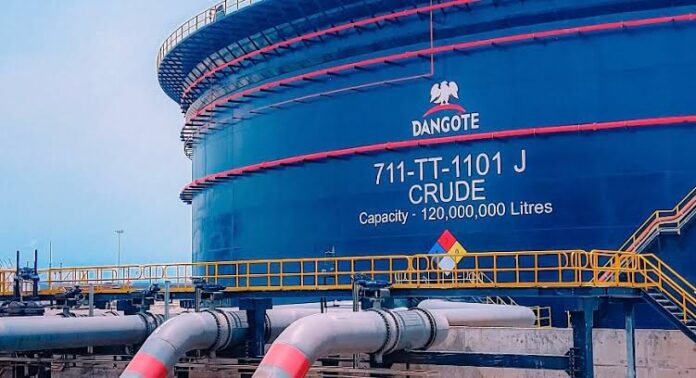Vice President of Oil and Gas at Dangote Industries Limited, Devakumar Edwin, has accused International Oil Companies in Nigeria of plans to frustrate the survival of the new Dangote Oil Refinery and Petrochemicals.
Edwin said the IOCs were “deliberately and willfully frustrating” the refinery’s efforts to buy local crude by hiking the cost above the market price, thereby forcing the refinery to import crude from countries as far as the United States, with its attendant high costs.
Speaking to reporters on Friday during a one-day training session hosted by the Dangote Group, Edwin further charged that the Nigerian Midstream and Downstream Petroleum Regulatory Authority had given marketers licenses to import unclean refined products into the nation without any discrimination.
Edwin claims that although the Federal Government of Nigeria granted 25 licenses for the construction of refineries, only the Dangote Group fulfilled its commitment.
The vice president mentioned that the refinery had shipped more than 3.5 billion litres of aviation fuel and diesel to Europe in the previous few months, even as he urged the government to provide support. It was stated that around 90% of the fuel produced was exported.
“The Federal Government issued 25 licences to build refineries and we are the only one that delivered on our promise. In effect, we deserve every support from the government. It is good to note that from the start of production, more than 3.5 billion litres, which represents 90 per cent of our production, have been exported. We are calling on the Federal Government and regulators to give us the necessary support to create jobs and prosperity for the nation,” Edwin stated.
He continued by saying that despite the Nigerian Upstream Petroleum Regulatory Commission’s best efforts, crude oil for the refinery with a capacity of 650,000 would not be allocated, “the IOCs are deliberately and willfully frustrating our efforts to buy the local crude.”
According to the Dangote official, the IOCs have occasionally pushed the refinery to pay $6 more than the market price. As a result, the company has been compelled to lower its output and incur higher costs for the import of crude from nations like the United States.
He said, “Recall that the NUPRC recently met with crude oil producers as well as refineries’ owners in Nigeria, in a bid to ensure full adherence to Domestic Crude Oil Supply Obligations as enunciated under section 109(2) of the Petroleum Industry Act. It seems that the IOCs’ objective is to ensure that our petroleum refinery fails. It is either they are deliberately asking for a ridiculous/humongous premium or they simply state that crude is not available. At some point, we paid $6 over and above the market price. This has forced us to reduce our output as well as import crude from countries as far as the US, increasing our cost of production.
“It appears that the objective of the IOCs is to ensure that Nigeria remains a country which exports crude oil and imports refined petroleum products. They (IOCs) are keen on exporting the raw materials to their home countries, creating employment and wealth for their countries, adding to their Gross Domestic Product, and dumping the expensive refined products into Nigeria – thus making us to be dependent on imported products. It is the same strategy the multinationals have been adopting in every commodity, making Nigeria and Sub-Saharan Africa to be facing unemployment and poverty, while they create wealth for themselves at our expense.”
“This is exploitation – pure and simple. Unfortunately, the country is also playing into their hands by continuing to issue import licences at the expense of our economy and at the cost of the health of the Nigerians who are exposed to carcinogenic products.”


 Sports2 days ago
Sports2 days ago
 Metro2 days ago
Metro2 days ago
 Metro24 hours ago
Metro24 hours ago
 Culture2 days ago
Culture2 days ago































